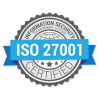Management consultancies have been a strategic tool for businesses seeking cost efficiencies and operational improvements since the late 19th century. However, their significance in the business landscape truly blossomed in the post-World War II period.
As the global economy expanded, companies grew larger and more complex, necessitating external expertise in areas like operations, finance, and strategy. Once they achieved consistent growth locally, businesses then turned their focus to expanding internationally, with management consultancies providing crucial advice on how to scale operations, enter new markets, and optimize global supply chains.
In this article, we will explore the evolution of management consulting and the transformative impact of technology on the industry. We’ll discuss how digital transformation has disrupted traditional consulting models, examine the challenges faced by established firms, and analyze the rise of AI-driven solutions. By the end, you will gain a comprehensive understanding of the shifting landscape in management consulting and the game-changing potential of automated cost optimization.
The rise of digital transformation
For well over a century, consulting firms have been a cornerstone of business strategy. However, with the rise of digital transformation in the last two decades, a significant shift has occurred. An abstract competitor came into play, challenging the traditional consulting model and forcing firms to adapt or risk obsolescence.
The culprit: Technology.
Automation and AI have revolutionized the consulting landscape by automating many tasks traditionally performed by consultants. Data analysis, process optimization, and even strategic decision-making can now be handled by sophisticated algorithms and machine learning models. Companies like McKinsey & Company have responded by integrating advanced analytics and AI into their offerings, but the competition is intensifying.
Impact on Traditional Consulting Firms
The pressure from these technological advancements and new competitors has forced traditional consulting firms to rethink their strategies. Many have had to diversify their revenue streams, increasingly focusing on technology-driven services.
Some firms have faced the need to downsize and restructure. While there isn’t a wealth of data on widespread layoffs, there are reports of shifts within firms, with traditional consulting roles being reduced in favour of expanding digital and technology teams. This restructuring reflects the changing demands of the market, where clients expect rapid, data-backed insights rather than just expert opinions.
The Data Speaks: Studies and Statistics
Several studies and market reports confirm these trends. For instance, Gartner’s market data on IT and consulting shows a steady increase in spending on digital transformation services, indicating a shift in where consulting budget is going. Similarly, reports from the Management Consultancies Association in the US (MCA) highlight the growing importance of technology in the consulting industry, with digital and tech services becoming a primary focus for many firms.
Employment statistics from major consulting firms also reflect this shift. Many firms report a growing proportion of their workforce being dedicated to digital and technology services, often at the expense of traditional consulting roles.
Digital transformation services are now in high demand, pushing IT and tech-focused consultancies to the forefront. Firms like Accenture, Deloitte, and Capgemini have capitalized on this shift by significantly expanding their digital capabilities. These companies have become key players in guiding businesses through their digital journeys, often outpacing traditional management consultancies in these areas.
The Need for Innovative Cost Transformation
Cost transformation stands as one of the most impactful ways to deliver value for customer. However, making significant improvements in client costs often requires innovative approaches that go beyond traditional methods of complexity management and budgeting.
Enter Thinking Machine, a company that has developed a ground-breaking solution that can revolutionize how management consultancies approach cost savings for their clients. Our patented technology offers an unprecedented ability to unlock substantial cost savings in technology spending, with the potential to reduce up to 10% of spend in the first month alone.
By leveraging the power of artificial intelligence and machine learning, Thinking Machine has created a tool that not only identifies savings opportunities but also provides actionable insights with remarkable speed and accuracy so our customers can secure and sustain the savings all year around.
The Power of automation in Cost Savings
At the heart of Thinking Machine’s innovation is its ability to extract valuable insights from PDF invoices and contracts. This approach eliminates the need for complex IT integrations, making it exceptionally accessible for management consultants. The process is straightforward: consultants simply upload their clients’ PDF documents into the platform, and the system gets to work, delivering real-time insights that can be immediately actioned.
The simplicity of using PDF documents as input cannot be overstated. It allows consultants to quickly deploy the solution without the typical hurdles associated with implementing new technologies. This ease of use doesn’t come at the cost of depth or accuracy. On the contrary, the tool’s document extraction ability to parse and analyze complex documents results in a level of insight that would be extremely difficult to achieve through manual analysis alone.
Conclusion: The Future of Consulting
The landscape of management consulting is evolving rapidly, driven by the relentless advance of technology. Traditional consultancies that once relied on their human capital and deep industry expertise are now in a race to integrate technology into their offerings. Those that succeed will continue to thrive in this new environment; those that fail to adapt may find themselves left behind.
As the consulting industry moves forward, it’s clear that technology will play an increasingly central role. Whether through automation, AI, digital platforms, or a little bit of all of that, the future of consulting will be faster, more data-driven, and more competitive than ever before. Solutions like those offered by Thinking Machine represent the cutting edge of this transformation, providing management consultancies with the tools they need to deliver unprecedented value to their clients in the digital age, helping them stay current and ahead of the competition.


